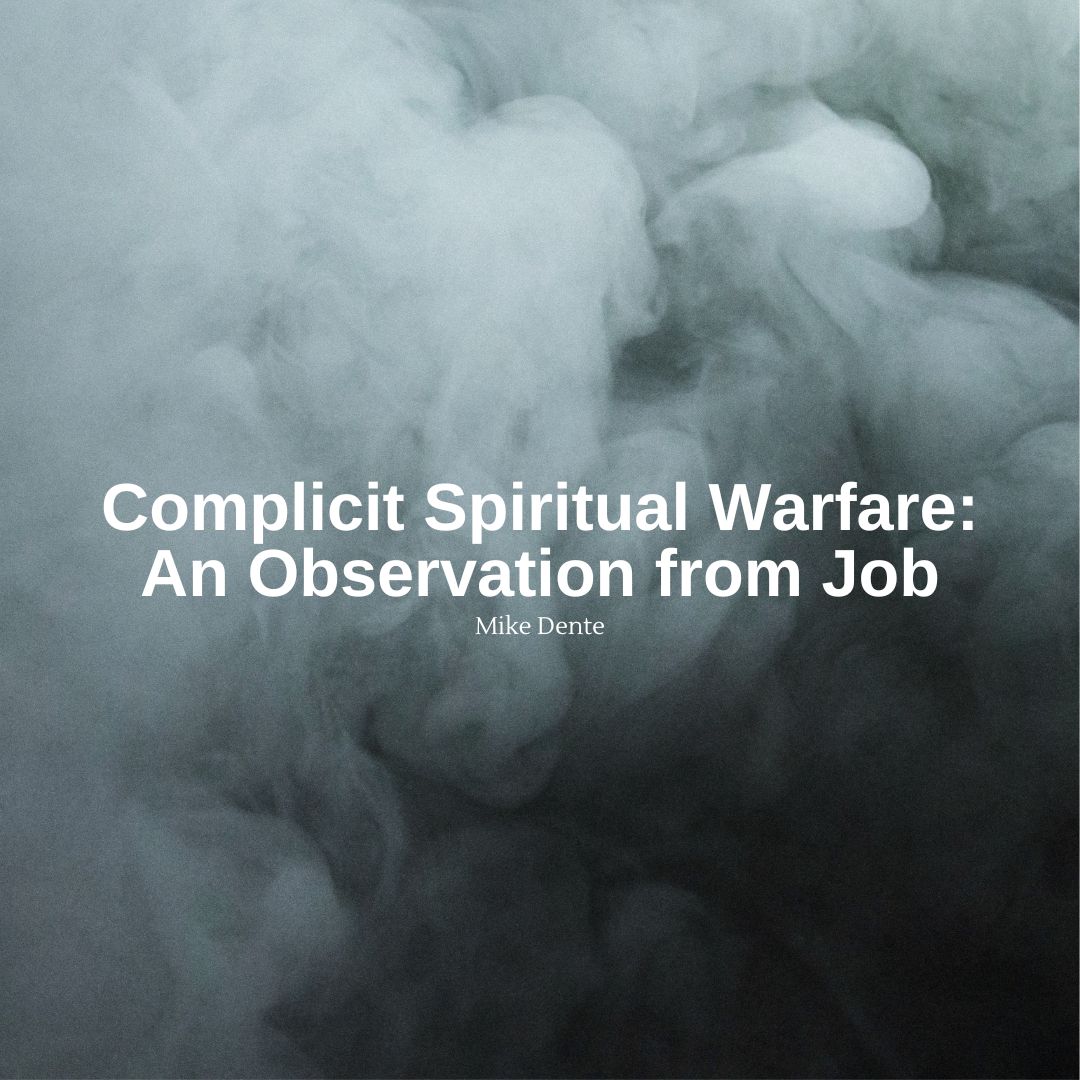
The power of the spoken word can have effects that outlast physical experiences. A few words of encouragement can help us overcome horrendous trials. But who hasn’t been crippled by words they should never have listened to, words that reaped a harvest of animosity and doubt for years after they were carelessly spoken. What is it about words that they can empower or deform a person simply by being heard? Pierce Taylor Hibbs gives a clue in his book The Speaking Trinity and His Worded World where he discusses how we were made to believe the words we hear. Going back to Creation, Hibbs reminds us that God is faithful and He created all from the power of His spoken Word.[1] This produces in human beings a natural understanding that there is truth, and it is communicated.
We see an example of this in infancy: A child generally believes their parents until they learn not to. To take it a step further, sin entered the world through words. An evil presence spoke words in the garden of innocence. Words have an impact, and I found this sink into my heart in a new way as I recently read through the Book of Job.
There is so much we could say about Job and spiritual warfare. Satan attacks our man directly, giving us a chilling image of his lust for spreading misery and suffering. Still, these movements are limited to a mere 2 chapters out of 42, leaving most of the rest to dialogue.
The Accuser Accuses Job
One of the more fascinating parts of the Book of Job is the “Staff Meeting” God has in the presence of the “sons of God” (Job 1:6). Many experts, like Tim Mackie or David J. A. Clines, identify these as angels, like in passages such as 1 Kings 22:19-22 and Daniel 7:9-14. During the heavenly council (Job 1:6), Satan opposes God’s claims about Job, accusing Job of serving God out of self-interest (Job 1:9). Who is this member of the “sons of God” who contradicts YHWH? We see in the original language that, unlike most English translations, Satan isn’t a proper name; it’s more of a title. The article “the” precedes the word “Satan,” like in the Evil One (Matt. 5:37), the Enemy (Matt. 13:39), the Devil (Matt. 13:39), etc. It would be like when we have a visitor to Calvary Chapel Paris, no one asks to see the Mike, but they may ask to see the Pastor.
Where do we get the idea that Satan isn’t a name but a title? The word in Hebrew we are referring to is הַשָּׂטָ֖ן (ha-satan), or more literally, “the Satan.” Interestingly enough, the Septuagint version of Job follows the pattern in Greek but with ὁ διάβολος (ho-diabolos) or “the devil.” But that’s not all. Paul also uses the formulation in 2 Corinthians 11:14, “And no wonder, for even Satan (ὁ σατανᾶς – ho-satanas) disguises himself as an angel of light.” Note that the apostle not only uses the Hebrew term transliterated into Greek (rather than “ho-diabolos”) but also keeps the article “ho” or “the,” which does not appear in our English Bibles. We could go larger and notice the same occurrence among other New Testament authors. Mathew uses the term with the article once; Mark, three times; Luke, six times; John, once in his Gospel and seven times in Revelation. The other nine times appear in Paul’s writings.[3]
If “the Satan” is a title, what does it mean? According to The Hebrew and Aramaic Lexicon of the Old Testament(HALOT), Satan means “adversary or opponent.”[2] The verb שׂטן (śṭn), which may have given us the name in Hebrew, means to oppose, be hostile to, or accuse. The title “the Satan,” therefore, refers to what he does. The Accuser accuses.
To get the full effect of what I’m saying, let’s look at Zechariah 3:1, where the two words are used. “Then he showed me Joshua the high priest standing before the angel of the LORD, and Satan (הַשָּׂטָ֛ן ha-satan) standing at his right hand to accuse him (לְשִׂטְנֽוֹ le-sitén-o).” It would be like saying the Satan was standing at the right of Joshua to “satanise,” or better yet, the Accuser was accusing him.
Job’s Friends Accuse Job
Returning to Job, all of this comes into focus in a fascinating way as we look at what Job’s friends were doing. In Job 4:7-9, Eliphaz says, “God punishes those who plow iniquity,” referring to Job. He even goes as far as to say in 22:4-18 “You are being punished because you sinned.” That sounds like he’s shaming Job with a bit of adversarial accusation. Bildad doesn’t do much better. In chapter 8:2-7, he says, “Your words are false, if you sought God He would bless you because He doesn’t punish unjustly,” and uses his two other monologues to bring home his point. Then Zophar, in chapter 20, dedicates a whole chapter to made-up accusations and false scenarios of God’s judgment on Job. May I suggest they were satanizing or adversarially accusing Job, possibly without realizing it? God even says they were speaking falsely about Him (Job 42:7).
Even if the Book of Job doesn’t use the verb שׂטן – śṭn (to oppose or to accuse), it does start off talking about “the Satan,” who opposes God, accuses His servant Job, and gratuitously destroys his life. I’m not saying every false accusation is from the devil; an overactive imagination or self-righteousness could just as well develop it. As people, we do not wrestle with “flesh and blood” (Eph. 6:12) as much as we might think, but the spiritual world is all too ready to add my half-baked contribution to their deadly poison. That’s why I read into Eliphaz and company a psychological and spiritual continuation of the same humiliation first inflicted by the Satan. Indeed, all has been taken from Job; even his friends have turned against him. If we consider the entire narrative of the book, it’s not too hard to imagine (and I don’t want to be dogmatic on this but only suggest a pattern) that this inference to Satan’s work of accusation in the mouth of Job’s friends?
The Impact of Accusations
In an especially helpful chapter from his book Understanding Spiritual Warfare, author Sam Storms speaks of the three weapons the devil uses most; accusations (he uses the term “word curses”), shame, and unforgiveness.[4] Storms explains how these three arms have a way of entering our minds, clouding our hearts with doubt, and in the end, separating us from God. We can also see this in Job’s responses to his friends. Through false accusations, they publicly shame him and lie about things he never did. After every speech, Job defends his integrity against the accusations, but at times, succumbs to despair and finds himself in a dark place (chapters 27-31). We can hope they wanted him to know God’s blessing again, but their words crushed him in a complicit effort borrowed from the Devil’s playbook.
A Better Way
This is where I’d like to go back to the idea of those deadly words that sear the soul and haunt the imagination. I’m horrified thinking about how easy it is for a friend to counsel another yet end up shaming them, or falsely and implicitly accusing them. Having been in the place of the friend as well as the one needing counsel, the warning of complicit spiritual warfare broke my heart. What can one do if they are the friend? I’ve learned to stop myself, listen, cry with my suffering friends, and sit quietly with them. What if we are the ones put on trial? God’s instructions in Job 42:8-9 have a profound lesson for our survival.
In these two verses, we can see the 3-R’s of healed relationships: repentance, restitution, and reconciliation. We see repentance not in their words but in the fact that Eliphaz, Bildad, and Zophar got the seven bulls for the offering. The offering began restitution, at least of a sullied reputation. But reconciliation came when Job prayed for his friends because God accepted his prayer. Forgiveness isn’t as clean and easy as we might think. We need divine intervention; we need Jesus. Depending on the depth of the wound, we may need quite a bit of prayer and sanctification to see true healing. The critical thing is that Job prayed, which leads me to believe he forgave.
In the end, though we may slip into complicit spiritual warfare, we need not be condemned. There is a way out. There is forgiveness and healing for the soul.
Though not so much in Job, true healing comes from the One who made the blind see and lame walk. The One who gave Himself for sinners and prayed, “Father forgive them. They know not what they do.”
______________________________________________________________________________________________________
References
[1] Pierce Taylor Hibbs, The Speaking Trinity and His Worded World: Why Language Is at the Center of Everything(Eugene, OR: Wipf and Stock, 2018) 55-58.
[2] Ludwig Koehler and Walter Baumgartner, The Hebrew and Aramaic Lexicon of the Old Testament (HALOT), ed. and trans. M.E.J. Richardson (Leiden: Brill, 1994-2000).
[3] Matthew 12:26; Mark 1:13, 3:26, 4:15; Luke 10:18, 11:18, 13:16, 22:31; Acts 5:3, 26:18; John 13:27; Revelation 2:9, 2:13, 2:24, 3:9, 12:9, 20:2, 20:7.
[4] Sam Storms, Understanding Spiritual Warfare: A Comprehensive Guide (Grand Rapids, MI: Zondervan Reflective, 2021).







